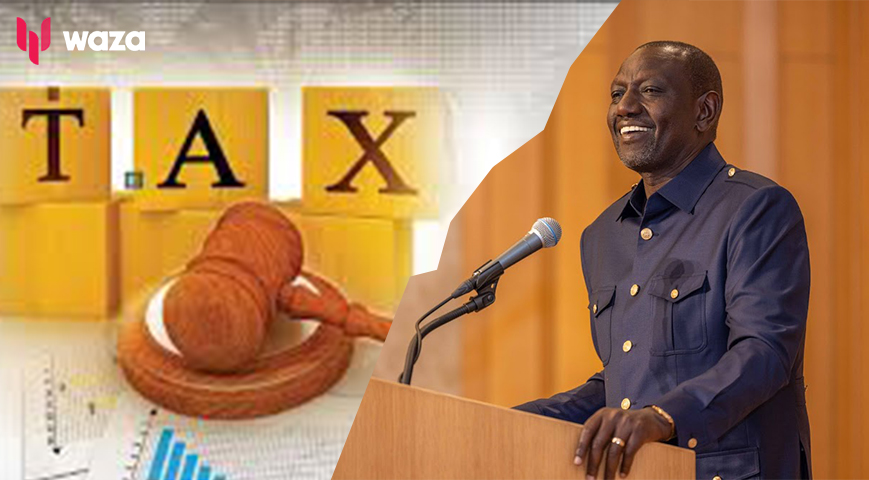Kenya is entering a challenging period as it grapples with the need to pay off debts, create jobs for its youth, improve public services, and combat entrenched corruption. The country’s new journey begins with a fresh cabinet, appointed after weeks of intense protests by young Kenyans demanding better governance.
The protests were initially sparked by proposed tax increases in the 2024/25 Finance Bill. The widespread demonstrations forced President William Ruto to withdraw the bill. However, the unrest continued, leading the President to dismiss his cabinet and pledge to address the growing list of public concerns.
Now in their second month, the protests have consistently disrupted businesses in Nairobi, Kenya's capital. These disruptions have affected supply chains and the income of the informal sector, which accounts for about 32% of Kenya’s GDP. Many investors and tourists are postponing their plans, depriving the economy of much-needed stimulation.

The new Minister of Finance, in collaboration with parliament, must now navigate the fallout from the withdrawn Finance Bill, which aimed to raise an additional KSh 302 billion—7.5% of the KSh 3.992 trillion budget presented in mid-June. A supplementary bill proposing deep spending cuts is already before parliament, as tax revenues are shrinking.
Did you read this?
Having studied Kenya’s economy for a decade, I believe the government risks missing its tax revenue targets, potentially leading to increased borrowing and unpopular austerity measures. The new treasury secretary has two main options: to find innovative ways to raise tax revenue and create jobs, or to cut government spending, which could lead to job losses and further protests. This situation is complicated by a perception that current economic reforms, including new or enhanced taxes, are being imposed by “outsiders.” Continued protests could lead to a government crackdown on freedoms and rights, potentially stifling economic growth.
The failure to secure the additional KSh 302 billion may impact priority projects. The government's options are limited, with calls to remove other unpopular taxes, such as the affordable housing levy, and demands for increased funding for universities and to prevent further fuel price hikes.
The government is also under pressure to hire 46,000 junior secondary school teachers, continue hiring medical interns, offset significant debts in the coffee and sugar sectors, and maintain fertilizer subsidies. Additionally, it has pledged to settle debts owed to county governments and increase funding for universities, all of which are politically sensitive issues as the 2027 election approaches.

Government spending will be reduced by KSh 177 billion, with borrowing increasing by KSh 164 billion. Plans include merging or dissolving 47 state corporations, reducing the number of advisers by 50%, and cutting non-essential travel by public officials. Budget lines for the President's and Deputy President's spouses have been removed.
Kenya is currently relying on the 2023 finance bill to collect taxes, with projected tax revenue at KSh 3.343.2 trillion, or 18.5% of GDP. There is a deficit of 3.3% of GDP, which is expected to rise with the shelving of the 2024 Finance Bill. It remains uncertain whether some government employees will lose their jobs. In a previous economic crisis, the International Monetary Fund imposed conditions that included mass layoffs of civil servants and state corporation workers.
It is unlikely that scaling down the government will be sufficient to reduce the budget deficit. However, not all is bleak. Kenya is set to receive concessional loans from the World Bank and other multilateral bodies. The willingness of bilateral donors to support Kenya during times of crisis was evident during the COVID-19 pandemic.
The government must think beyond taxes and consider economic reforms that will stimulate growth. The new treasury secretary should focus on making the country more attractive to investors and entrepreneurs. Deregulating the economy further could foster competition, innovation, and growth. This is crucial, as value-added tax is a significant source of public revenue in Kenya, accounting for 24% of tax revenues in 2021, compared to 22% from personal incomes and 11% from corporate entities. If stability is restored and confidence in the economy is rebuilt, consumption will increase, leading to higher tax revenues. These additional taxes will depend on economic growth and consumer sentiment.
Addressing the economic grievances of the Gen-Z and other generations and rebuilding confidence in the economy will attract investors, expand existing businesses, and create the jobs that are central to the Gen-Z demonstrations. Looking ahead, Kenya appears to be on the brink of a renaissance in governance, leadership, and economics. The focus must shift to how the government generates revenue and how it uses it, overshadowing political concerns.









